Affiliate Disclaimer
Some links in this article are affiliate links. We may earn a small commission if you make a purchase through these links, at no extra cost to you. We only recommend products we find useful to our readersSugar is present in many of our regular meals, and most of us consume too much. Have you ever wondered how to reduce your sugar intake? Rough estimates for 2021 showed that 38.4 million Americans of all ages, or 11.6% of the total population, had diabetes, and 14.7% of adults in the United States over the age of 18—38.1 million—had diabetes.
Reducing sugar consumption requires daily healthy decision-making, not just avoiding sweets. Small changes can tremendously impact our lives, such as selecting water over soda or replacing sugary snacks with fruits.
This article will teach you practical strategies for cutting back on sugar consumption that will improve your health. You’ll learn simple techniques to control your sweet tooth without depriving yourself.
How Too Much Sugar Impacts Your Health
Overconsumption of sugar can harm your health, leading to weight gain, and raising the risk of obesity, type 2 diabetes, heart disease, and tooth decay. Research shows that high sugar intake also causes energy crashes, leaving you tired and irritable, and is linked to chronic inflammation, which can lead to conditions like metabolic syndrome and liver disease.
Excess sugar may even affect your mental health, increasing the risk of depression and mood swings. Reducing sugar can improve your overall well-being, maintain steady energy, and protect your long-term health without giving up all treats.
The side effects of too much sugar and why it’s essential to cut back are:
1. Induces Premature Aging
Too much sugar damages collagen, elastin, and skin proteins, leading to early wrinkles and sagging skin. For women, excess sugar can also cause acne by affecting hormone levels. If you have eczema or other skin issues, it’s best to avoid too much sugar.
2. Hyperglycemia
Yet another common immediate side effect of too much sugar is an upsurge in glucose levels in the bloodstream. It is essential to ensure that people with diabetes maintain a healthy level of sugar consumption. Spikes in blood glucose levels often impact the pancreas’s insulin secretion into the bloodstream and can even induce insulin resistance.
3. Weight Gain
Weight gain is one of the most common side effects of overeating sugar, especially from sugary drinks. These drinks are very high in calories and can affect the body differently. The main issue is the fructose in them, which can increase hunger and cravings. A high fructose level can lead to leptin resistance, where your body struggles to signal when you’re full. It often leads to overeating, which is a significant cause of weight gain.
4. Low Energy Levels
Eating sugar and carbs gives us energy but can also make us feel tired later. This happens because sugar gives us a quick boost, but then our energy drops. When we eat a lot of sugar, the body uses insulin to turn it into energy. Once that energy is used up, our body needs more sugar to keep going, which can lead to feeling low on energy.
5. Impacts the Immune System
Bacteria and other germs in your body thrive on sugar, so consuming more helps them grow and spread. As these bacteria multiply, they can cause infections that weaken your immune system.
6. Risk of Heart Diseases
Another common side effect of too much sugar is that it impacts the overall risks of heart disease (R). Sugar contains many calories, which can increase the levels of fats and triglycerides in the body. If the body produces more fats and triglycerides than it metabolizes, it will clog the arteries, increasing the risk of heart disease. Clogged arteries increase the risk of developing atherosclerosis, which is believed to be one of the most common heart diseases that many people often suffer from.
15 Easy Ways to Reduce Your Sugar Intake
So how can you stop eating so much sugar? Finding ways to eat less sugar is essential, and we have some helpful tips.
1. Cut Down on Sweetened Beverages

Do you often grab a drink with every meal? If you want to cut down on sugar, it’s essential to stop this habit. Sweet drinks are a big reason why you might not feel great. The high fructose in them is especially harmful, particularly for people with diabetes.
Plain water can seem boring, so try replacing sugary drinks with flavored water made from natural ingredients.
2. Understand Your Best Choices

When people learn about the dangers of too much sugar, they often want to cut everything out of their diet. However, there are better approaches than total elimination. There are two types of sugar – the good kind and the wrong kind.
Natural sugars in fruits and vegetables are healthy, but you should avoid added and refined sugars. Understanding the difference is essential to learn how to reduce added sugar. Focus on cutting back on foods with added sugar, but don’t worry too much about foods with natural sugars.
3. Combine Your Foods
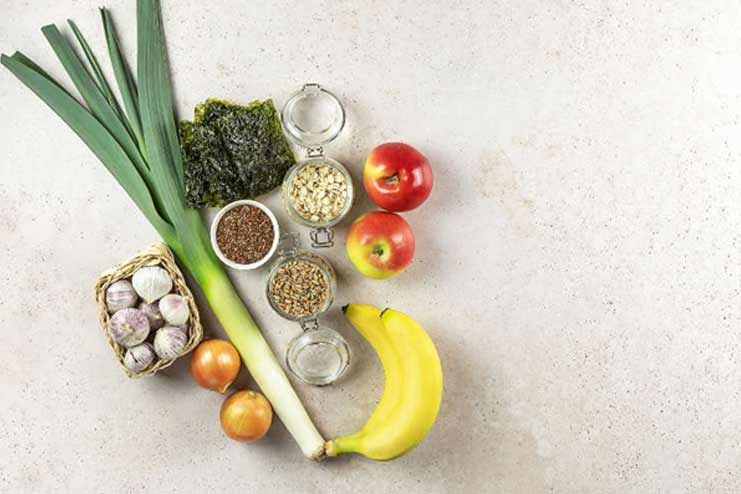
It’s normal to crave unhealthy foods that might affect your health, especially your blood sugar levels. Instead of altogether avoiding these cravings, try balancing them with something healthy.
For example, if you’re craving chocolate, eat it with a banana or chocolate chips with almonds instead of overeating chocolate. This way, you can satisfy your craving while getting essential nutrients that help your body process the sugar better.
4. Make Healthier Choices with Desserts

Many people love desserts, but those can quickly raise blood sugar levels. If you want to eat less sugar, choose healthier desserts.
Instead of grabbing a super-sweet treat, try options like yogurt with fruit. You can also add cinnamon to your desserts, as studies show it can help lower blood sugar levels.
5. Plan Your Weekly Fruit Supply

If you have been trying to reduce the sugar intake in your daily diet, you will likely be looking for replacements for those sugary treats. Fruits make a fantastic sweet replacement. It is essential to include a good amount of natural sugars in the body because carbs in this form are essential for the body.
Keep your kitchen stocked with fresh fruits to ensure you have something healthy on hand to combat sugar cravings.
6. Try Going Cold Turkey

If you want to stop eating too much sugar, quitting altogether is one of the most effective—and challenging—methods. Most experts and people who have done it say the first two days are difficult and may make you feel dizzy and unwell.
However, sticking to a no-sugar rule becomes easier over time, and your cravings will reduce as you continue.
7. Avoid Sauces
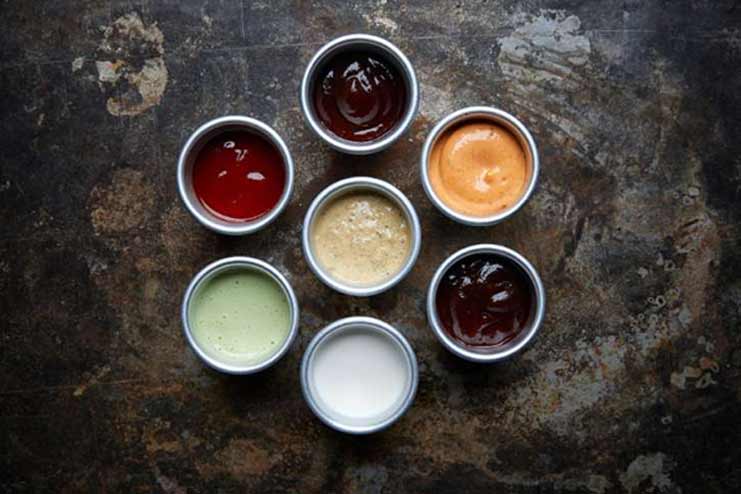
When cutting back on sugar, remember that sauces can be high in sugar and additives, raising blood sugar levels. For example, just one tablespoon of ketchup has 4 grams of sugar.
Avoid sauces to reduce your sugar intake, and do not assume they’re safe to include in a dietetic-friendly diet.
8. Dried Fruit: Not as Healthy as You Think
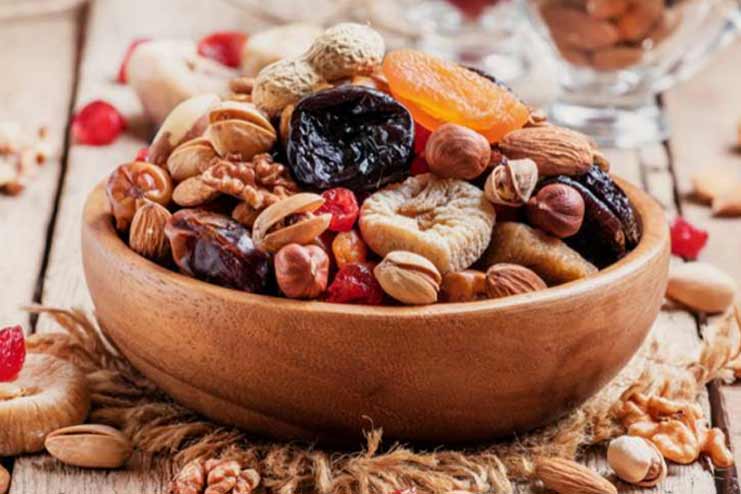
It is a widespread belief that dried fruits are an ally in treating and managing sugar cravings. But, in reality, most dried fruits tend to have a high glycemic index, and drying the fruit further increases the sugar concentration.
Suppose you consume naturally dried fruits that do not contain additives or refined sugar. In that case, it is best to choose those with a low glycemic index to keep your glucose levels in control. Avoid the canned variants because they are high in sugar and have additives to enhance their shelf life.
9. Be Aware of Portion Sizes
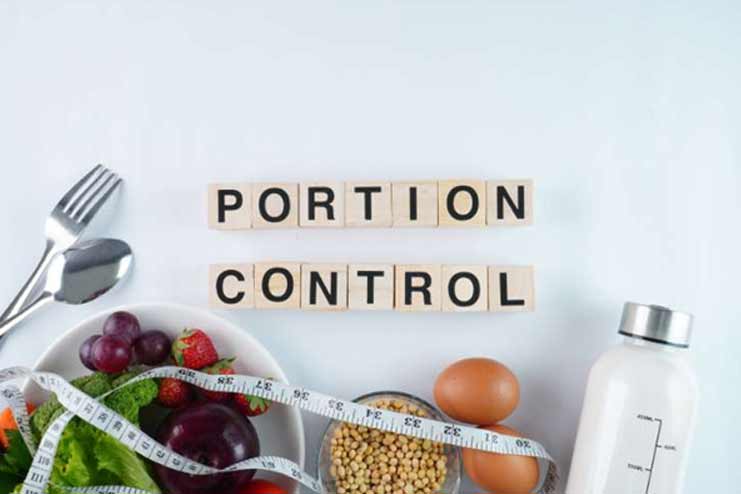
We all enjoy sweet treats sometimes, and giving in to cravings is okay. The key is to watch your portion sizes.
Instead of eating a giant chocolate bar, try a small piece of dark chocolate, which is healthier and helps control cravings.
10. Stick to Whole Foods
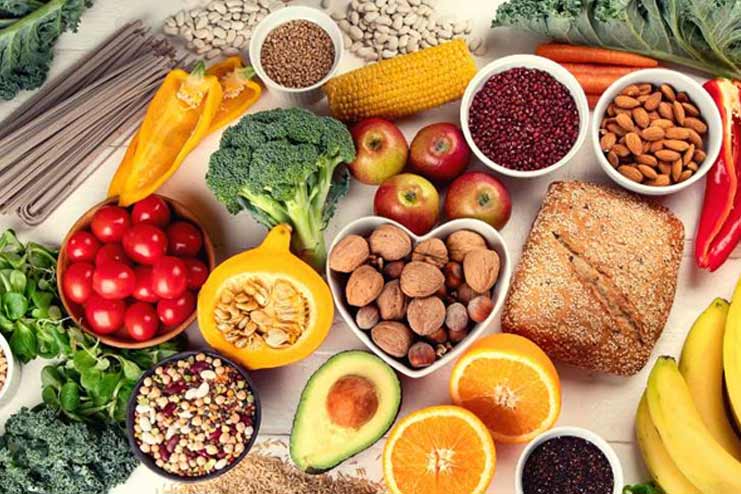
We often eat too many grains and processed foods. If you want to reduce sugar, it’s time to remove refined grains from your diet. These processed foods contain a lot of harmful sugar and additives.
Start by cutting out refined grains in breads and sticking to healthier, whole-grain versions that are better for you in the long run.
11. Try Fennel Seeds
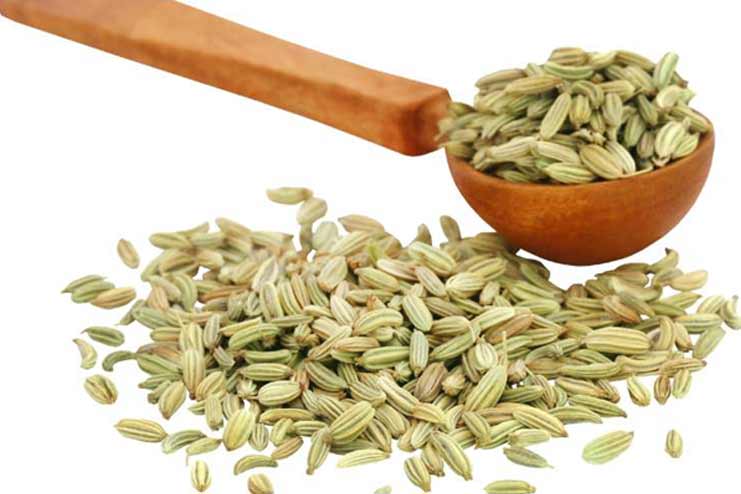
Having post-meal dessert cravings is normal. Try eating some healthy fennel seeds instead of reaching for that cupcake. Not only are fennel seeds sweet without any sugars, but they also help curb unnecessary dessert cravings following a meal. The best part is that fennel seeds are good for digestion and prevent signs of stomach bloating after a heavy meal.
12. Eat on Time
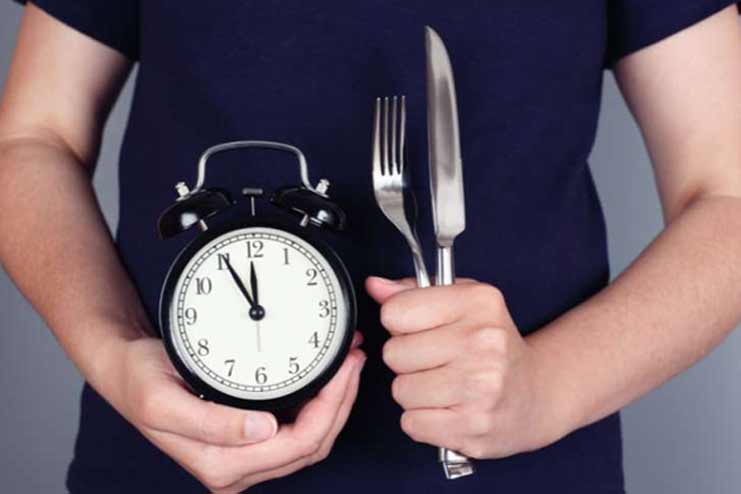
Eating meals on time is an easy way to avoid too much sugar. When you wait too long between meals, you may feel extra hungry and eat unhealthy snacks. To prevent this, eat regularly and include healthy snacks to stop sugar cravings.
13. Drink Some Tea

Instead of eating something sweet, fix a cup of herbal tea to reduce cravings. Flavors like chamomile, lemon, and ginger help calm your senses, which is associated with effectively managing sugar intake.
14. Don’t be Misled by ‘Healthy’ Snacks
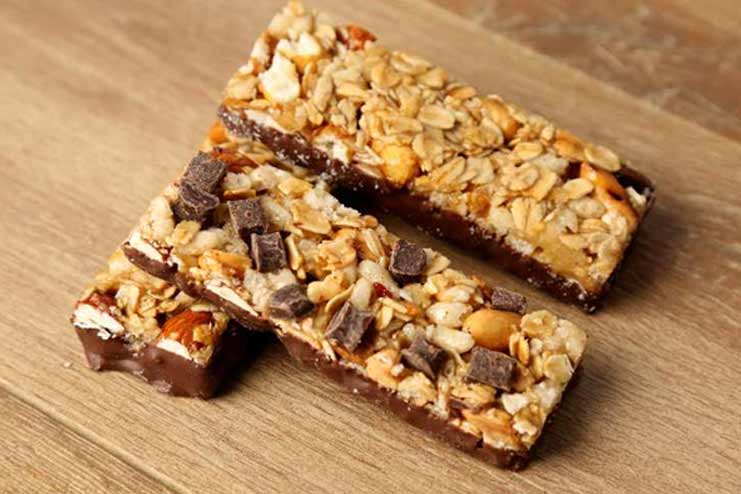
Many of us rely on protein and granola bars to curb hunger, thinking they are good for us. But this isn’t always true. Even though they’re labeled “healthy,” they can be full of refined sugar unless you make them at home with the right ingredients.
It’s better to avoid store-bought bars; if you want them, try making your own from scratch.
15. Watch Out for Dairy Alternatives

When choosing a milk alternative, picking the unsweetened option is essential. Many non-dairy milks come in two types: one with added sugar and one that’s all-natural and unsweetened. If you’re trying to reduce sugar, always use the unsweetened version.
Conclusion
Staying motivated and committed to this change is critical. Reducing sugar can significantly improve how your body works. To keep your blood sugar in check, watch what you eat, stay active, and avoid a sedentary lifestyle.
-
Feb 2019Written by Somapika D
-
Oct 2024Edited by Ankita
References
- https://www.ncbi.nlm.nih.gov/pmc/articles/PMC9323357
- https://www.webmd.com/diabetes/features/how-sugar-affects-your-body
- https://www.health.harvard.edu/heart-health/the-sweet-danger-of-sugar
- https://healthmatters.nyp.org/how-much-sugar-is-too-much
- https://www.heart.org/en/healthy-living/healthy-eating/eat-smart/sugar
- https://www.healthline.com/nutrition/too-much-sugar
- https://www.webmd.com/diabetes/ss/slideshow-diabetes-too-much-sugar
- https://www.healthline.com/nutrition/foods-that-fight-sugar-cravings
- https://www.webmd.com/diet/features/13-ways-to-fight-sugar-cravings
- https://www.openaccessgovernment.org/tackle-sugar-addiction-sweet-tooth/158768
- https://www.cdc.gov/diabetes/php/data-research/index.html
In this Article


















